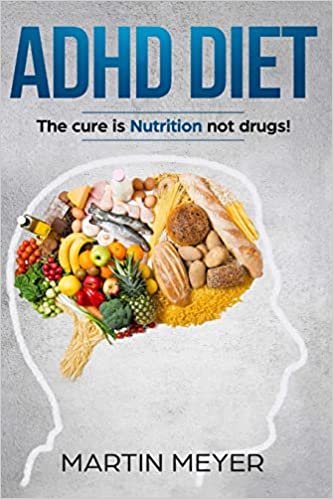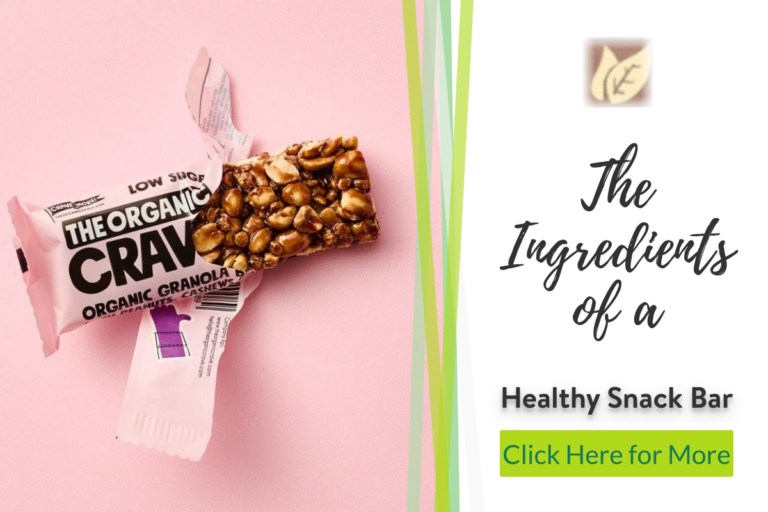Food associated with ADHD
Attention Deficit Hyperactivity Disorder (ADHD) is a complex neurodevelopmental condition that affects millions of individuals worldwide.
The symptoms of ADHD, including difficulty concentrating, impulsivity, and hyperactivity, can negatively impact all aspects of life, from academics to social interactions.
While the causes of ADHD are not fully understood, recent research has explored the potential link between certain foods and ADHD symptoms.
In this blog post, we will delve deeper into the food associated with ADHD and explore the current scientific evidence surrounding these claims.
There is a growing body of research that suggests that certain foods can contribute to ADHD symptoms.
Some studies have pointed to a possible link between sugary and processed foods and an increase in hyperactivity and attention problems.
In contrast, other research suggests that a diet rich in whole foods, specifically those containing omega-3 fatty acids, can potentially alleviate some ADHD symptoms.
Understanding the potential relationship between food and ADHD is critical for individuals with the condition, their caregivers, and the medical professionals.
Table of Contents Food associated with ADHD
Studies suggest ADHD symptoms can be affected by certain foods.
Various studies have suggested that certain foods can have an impact on ADHD symptoms.
Although research in this area is still ongoing, many medical professionals believe that making dietary changes can provide additional support to traditional treatment methods.
Foods high in sugar, artificial colors, and preservatives are often associated with exacerbating ADHD symptoms.
It’s been suggested that these foods can cause a spike in blood sugar, triggering hyperactivity and impulsivity.
Certain foods rich in protein, complex carbohydrates, and omega-3 fatty acids may help improve attention, behavior, and mood for people with ADHD.
However, it’s important to remember that food alone cannot cure ADHD, and any dietary changes should always be discussed with a healthcare professional.
Foods high in sugar and artificial additives are believed to exacerbate symptoms.
Some scientific evidence suggests that certain foods may worsen ADHD symptoms. Foods high in sugar and artificial additives appear to be particularly problematic.
Consuming too much sugar can cause blood sugar levels to rise and fall rapidly. This can make symptoms like hyperactivity and inattention worse, as well as lead to irritability and mood swings.
Additionally, artificial additives like food coloring and preservatives have been found to negatively affect attention, behavior, and mood in some individuals with ADHD.
To support healthy brain function and manage ADHD symptoms, it is recommended that people with ADHD limit their intake of sugary and processed foods. Instead, they should focus on consuming fresh, whole foods. The exact reasons for these negative effects are not completely known.
Foods high in protein and complex carbohydrates may help alleviate symptoms.
Attention Deficit Hyperactivity Disorder (ADHD) is a neurodevelopmental disorder characterized by inattention, impulsivity, and hyperactivity that can affect both children and adults.
While medication and therapy are effective treatments, many people with ADHD turn to diet to alleviate some of their symptoms. Foods high in protein and complex carbohydrates may help alleviate symptoms. High-protein foods such as lean meats, poultry, fish, and legumes can provide long-lasting energy and improve concentration.
Eating complex carbohydrates like whole-grain bread, brown rice, and oatmeal can help control blood sugar levels. This can prevent the energy drops linked to ADHD.
A diet with lots of protein and complex carbohydrates can be helpful for people with ADHD. However, it’s important to talk to a healthcare professional before making big changes to your diet.
Omega-3 fatty acids have been shown to improve cognitive function and may help with ADHD symptoms.
Omega-3 fatty acids are essential fats that are important for brain function and development. Studies have shown that consuming adequate amounts of omega-3 fatty acids can have a positive impact on cognitive function, including memory and attention.
Research has also suggested that omega-3 fatty acids may be beneficial for individuals with ADHD. ADHD is a complex neurological disorder that affects cognitive processes such as attention, impulsivity, and hyperactivity. While the exact causes of ADHD are not fully understood, neurological and genetic factors are believed to play a role.
Including sources of omega-3 fatty acids in your diet can be important for improving cognitive function and reducing ADHD symptoms.
Some studies suggest that gluten and dairy may worsen symptoms in some people with ADHD.
ADHD is a neurodevelopmental disorder characterized by symptoms such as impulsivity, hyperactivity, and inattention. While stimulant medications are commonly used to manage these symptoms, there is growing interest in the role that diet may play in managing ADHD.
Some studies suggest that certain foods may worsen symptoms in some people with ADHD, including gluten and dairy products. Gluten is a protein found in wheat, rye, and barley, and some individuals may be sensitive to it. Similarly, dairy products contain a protein called casein, which some people may be intolerant to.
More research is needed to understand how diet and ADHD are related. Changing your diet should be done with the guidance of a healthcare professional.
High levels of caffeine can worsen hyperactivity and impulsivity in people with ADHD.
In recent years, there has been growing interest in how diet may affect ADHD symptoms in children and adults. One specific area of interest is the role of caffeine consumption.
High levels of caffeine can worsen hyperactivity and impulsivity in people with ADHD. Caffeine, a stimulant, is commonly found in coffee, tea, soft drinks, and energy drinks.
While caffeine may have positive effects on cognition and attention in some individuals, it can have negative effects on others, particularly those with ADHD. It is recommended that individuals with ADHD limit their caffeine intake or avoid it altogether to help manage their symptoms. Additional research is needed to better understand the relationship between caffeine consumption and ADHD symptoms.
A balanced diet with plenty of fruits and vegetables is important for overall health and may also help with ADHD symptoms.
ADHD, or Attention Deficit Hyperactivity Disorder, is a neurodevelopmental disorder that affects both children and adults.
Diet can help manage ADHD symptoms alongside medication and behavioral therapies, according to recent studies.A balanced diet rich in fruits and vegetables is important for overall health and may also assist with ADHD symptoms.
A study published in the Journal of Child Neurology found that children with ADHD who ate a Mediterranean-style diet, including fruits, vegetables, fish, and whole grains, saw notable improvement in their symptoms.
Individuals with ADHD should consult a healthcare professional and follow a balanced and nutritious diet that includes plenty of fruits and vegetables to potentially improve their condition.
It is recommended to keep a food diary to track how different foods affect ADHD symptoms.
Keeping track of what you eat can have a significant impact on managing ADHD symptoms. It is recommended to keep a food diary to track how different foods affect ADHD symptoms.
The diary should include information on the types of food consumed, the time of day, and any ADHD symptoms experienced after eating. Tracking food intake can help identify patterns and triggers that may exacerbate symptoms, such as hyperactivity or inattention. For instance, some individuals with ADHD may be sensitive to certain foods, such as those high in sugar or artificial additives.
By keeping track of the food consumed, individuals can better understand how certain foods impact their ADHD symptoms and make necessary adjustments to their diet to manage symptoms. Food tracking can also be a useful tool in collaborating with healthcare professionals to develop personalized treatment plans for individuals with ADHD.
Working with a registered dietitian can help develop a personalized nutrition plan for managing ADHD symptoms.
In managing ADHD symptoms, it is crucial to have a personalized nutrition plan that is tailored to each individual’s unique needs. One effective way to achieve this is by working with a registered dietitian who has the necessary expertise to develop a specialized nutrition plan designed to manage ADHD symptoms.
A registered dietitian can guide individuals in making informed dietary choices by assessing their nutrient requirements, analyzing their dietary habits, and suggesting changes to their diet that can help reduce the severity of ADHD symptoms.
Through this personalized approach, individuals with ADHD can achieve better health outcomes and improved quality of life. With the assistance of a registered dietitian, individuals can develop a nutrition plan that is easy to follow and fits their busy lifestyles, which can lead to long-term success in managing ADHD symptoms.
It is important to note that while certain foods may affect ADHD symptoms, they are not a substitute for medical treatment and therapy.
It is essential to address that while certain foods may impact ADHD symptoms, it is crucial to understand that they are not a replacement for medical treatment and therapy. People with ADHD require a comprehensive treatment plan that comprises medication, counseling, behavior therapy, and other interventions.
It is recommended that individuals consult with their healthcare provider, registered dietitian, or mental health expert before making changes to their diet. Proper diagnosis, management, and education are key to managing ADHD effectively. Food and nutrition can play a role in supporting overall health and well-being, but they should only be viewed as part of a comprehensive treatment plan.
In conclusion, while it is not yet conclusive that certain foods cause ADHD or worsen its symptoms, evidence shows that a healthy and balanced diet can positively impact the condition. Nutritious food rich in vitamins, minerals, and omega-3 fatty acids have shown to be beneficial for people with ADHD. Cutting down on processed foods, sugary snacks, and food with harmful additives is generally recommended. Thus, incorporating a healthy and balanced diet along with ADHD medication and behavioral therapy can make a positive difference for people with ADHD, improving their quality of life.








